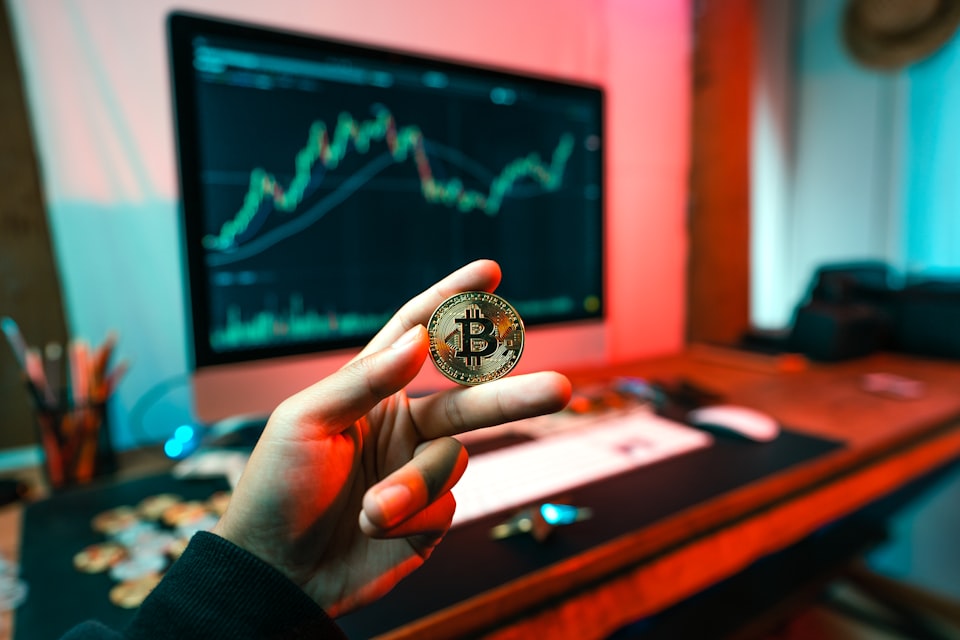Making Sense of Crypto ETFs

#Finance, #Taxes
The whole point of crypto of that you own your assets exclusively.
However, there are certain cases when one would prefer ETF instead. Not a financial advice, just sharing some thoughts about it.
What's Wrong With Crypto as an Investment
Legal Issues
First of all, not all countries accept crypto as a legit asset. In many of them, it's still a grey zone of peer-to-peer transactions.
Offset Gains For Taxation Purposes
If you manage a portfolio of assets of all kinds, there certainly be a moment when you would want to adjust some of the positions to fixate the profits and losses.
Although taxation rules differ from country to country, the most typical rule of thumb: you can offset gains with losses for assets of the same kind and pay taxes for the net gains.
You can offset ETFs with stocks because it's the same thing, but you probably cannot offset futures with stocks, or dividends with the interest rates paid for the leverage.
I won't be 100% sure that it's possible to offset stocks with crypto. It depends on the country but most likely not. Almost certainly not if crypto is in the grey zone for the particular country.
Taxation Risks
Let's imagine that crypto is 100% legal in the country you are residing.
Now imagine that the crypto you were holding has suddenly skyrocketed to the moon and you decide to use it to buy something expensive.
What if the volume is significantly larger than your income and tax authorities would get alerted? How would you prove the source of wealth? Would you point to a transaction's hash in the blockchain?
Was it a plain price gain or some sort of crypto magic with loans, stacking, etc? How can you make sure that tax authorities would sort it out correctly and you won't get into trouble like this guy?
3rd Party Risks
How about the crypto origins? Was it purchased on a licensed exchange or P2P? How to make sure the crypto purchased on a P2P exchange was not a transaction from the dark, like a drug dealer or human traffic money laundry?
Gateway Volume Constraints
Volume is not a big deal unless it's large. The problem is not usually related to crypto exchanges since they typically have enormous limits.
The bottleneck is usually banks.
As soon as you hit the limit, your account can be flagged and subjected to compliance checks: SOW, KYC, and other swear words which you never want to deal with.
For example, in Portugal, crypto is 100% legal, and banks feel ok when you deposit to withdraw to their accounts from crypto-related sources. But they get alerted when you reach a monthly limit of 3k euros.
P2P cash exchange is an alternative but still is a bit of a risk. It all works with amounts of pocket-sized expenses. A larger amount can bring trouble.
Storage Risks
Another risk with crypto is the risk of being hacked. Cold storage wallets partly solve this issue, but still, a thing to be aware of.
When Crypto ETF is a King
Crypto ETF traded on regular exchanges is a king when you want to add a crypto exposure to your portfolio, have 100% legal taxable profit (or loss), and don't want to deal with the problems above.
However, there are also some caveats.
Caveats of Crypto ETFs
In general, Crypto ETFs carry all perks and risks of plain old good financial securities.
Management and Expenses Fees
Management and expenses fees are downsides of all ETFs and Crypto ETFs are not an exception. For crypto, it's typically higher so it should be taken into account. It's not perfect if we compare it with cold storage under the bed's mattress, but definitely with its benefits.
I think, that the overall costs of holding + conversion would not be higher than with popular crypto <-> fiat gateways, especially in volatile times.
Level of Liquidity
Crypto ETFs are not that popular securities to be infinitely liquid, so they should be taken with care when placing orders in the market.
Anyway, liquidity is expected to be incomparably higher than at your local crypto P2P mate.
Counterparty Risks — ETP: ETF vs ETN
Even though ETFs are traded on regulated exchanges and somewhat licensed there is always a risk of a big blow up.
Typically they all call themselves ETFs but there is a difference that matters a lot.
Classically, Exchange Traded Fund (ETF) is a direct mapping of the investors' funds into the underlying assets. In that sense, investors own the underlying assets. That's why it doesn't bring any additional counterparty risk: the price of the fund is defined by the prices of underlying assets and variance is quite limited.
By contrast, Exchange Traded Note (ETN) is a thing that puts all obligations on the fund itself. Whether investors would be paid back or not depends on the creditworthiness of the ETN issuer. If things go wrong on the issuer side for any reason, investors would be trapped.
Exchange Traded Product (ETP) is a broader name for financial securities that track the performance of underlying assets. From what I can see, Crypto ETPs call themselves that way when they don't want to emphasize whether they are ETF or ETN.
The rule of thumb: look into prospectus.
When I do it I try to figure out at least 2 things:
- It should be exactly ETF.
- It should be physically backed with a cold storage
I also check the market volumes to figure out the liquidity. Ideally, the market volumes are so high that my volumes are unnoticeable.
No List of ETFs Here
I could probably include a list of ETFs that I follow, but I don't want to make a investment advice or promotion. Everyone can google it yourself.
Comments